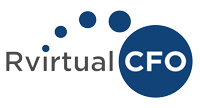Money—we never seem to have enough of it, especially during an emergency. Being financially prepared for emergency expenses takes planning before the bottom falls out of your safety net.
Financial emergencies can be anything from loss of paychecks, mounting medical bills, a damaged roof, a broken-down vehicle—and just about anything in between.
Natural disasters like fires, tornadoes, floods, and earthquakes may help with casualty loss tax deductions, but with insurance and government assistance, those numbers may not help in the long run. Being financially prepared is the start to long term peace of mind.
Financial preparedness is the way to start; get your emergency funding plan in place in these ways.
Cash Stash
Even in our digital world, having a bit of cold hard cash stashed away is handy for unexpected expenses. Store cash in a fireproof box or safe in your home that only you and a trusted family member can access.
Savings Account
Set up a separate savings account with your banking institution. Start with $10 a week or $25 each payday … any amount is more than nothing. Allocate a specific amount—you can adjust it as needed.
Cutting everyday expenses and deciding between “what I need” and “what I want” will help you save money that can be put toward an emergency savings account.
Examples?
- Buying store brand instead of name brand products at the grocery store.
- Cutting back on pay TV, video game purchases, and other entertainment expenses.
- Doing your own household work, such as building kitchen cabinets, mowing the lawn, spraying for bugs, and shoveling snow. Hiring out costs money.
Keeping your emergency savings account in mind will help you to remember to put “extra” money aside. (Get a coin container for dollar bills and extra change. Take it to the bank when full). Don’t spend it, save it!
Emergency Plan
Creating an emergency plan can be a daunting task, especially when you don’t know where to start. An Emergency Financial First Aid Kit lays out the basics of what can happen and how to be ready. The EFFAK has a checklist for important documents such as medical information, legal and financial records, and household contacts. Store important records and receipts in fireproof, waterproof containers. Digitize records whenever possible.
Insurance
Bailing yourself out of a serious financial jam after a “disaster” often starts with insurance, and whether your home (or body) is adequately covered. Review all insurance policies at least once a year. Contact your agent if you don’t understand exactly what is, and what is not, covered. Misunderstandings can be financially detrimental.
Pictures and Documents
Take pictures and video of items in the home—especially the more valuable pieces that need to be replaced, repaired, or rebuilt after a disaster. Back up digital images to the cloud or on a flash drive and store in a fireproof container. Safeguard important papers—birth certificates, photo IDs, military IDs, social security cards, passports, and pet identification.
Safeguard Your Info
Artificial Intelligence has given criminals more sophisticated ways to scam people out of their money and personal information.
Do not click on links in emails and texts from people you don’t know. Scammers create fake links to fake websites. Scammers also contact unsuspecting “marks” through social media pages and messengers. Delete and report as “junk” if you get offers from people you don’t know.
Do not share bank account numbers, your social security information, or credit card numbers with unsolicited contacts. (Tip: The government will not contact you through social media or ask you for money by telephone). Scammers take advantage of people, especially those facing financial issues. Watch out for so-called work from home opportunities, student loan repayment plans, home improvement work, and debt consolidation offers.
Electronic Benefits
Mail service isn’t always reliable, especially after natural disasters like hurricanes, blizzards, tornadoes, and floods. While many companies now use direct deposit for paying their workers, paper paychecks still play a part in today’s economy. Electronic Funds Transfers (EFTs) for paychecks, Social Security, disability payments, and other financial transfers help you get your money right away, and remove the risk of having money stolen. EFTs for government assistance benefits like healthcare and food stamps is a safe method of delivery.
Emergency funds aren’t easy to hang on to; it’s too easy to dip into that savings place for something else that we deem as “necessary.” But if you don’t have a backup plan, that’s when you will need it most. Being financially prepared for unexpected emergencies doesn’t happen unless we get serious. And there’s nothing as serious as having your house burn to the ground with no money available to rebuild.
Article written by Teri Silver.
Teri Silver is a journalist who has several “cash stash” spots around the house, and an emergency funds bank account. When a tornado went through their home last spring, she and her husband had to tap emergency funds to pay for what insurance would not cover. Teri believes in being prepared because “it’s always something, it’s never nothing.”

